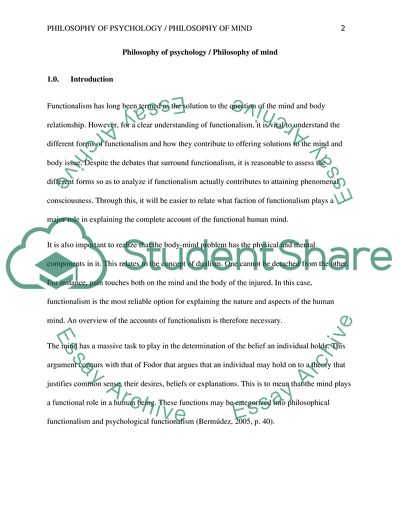Cite this document
(The Various Forms of Functionalism Essay Example | Topics and Well Written Essays - 2000 words, n.d.)
The Various Forms of Functionalism Essay Example | Topics and Well Written Essays - 2000 words. https://studentshare.org/philosophy/1809071-philosophy-of-psychology-philosophy-of-mind
The Various Forms of Functionalism Essay Example | Topics and Well Written Essays - 2000 words. https://studentshare.org/philosophy/1809071-philosophy-of-psychology-philosophy-of-mind
(The Various Forms of Functionalism Essay Example | Topics and Well Written Essays - 2000 Words)
The Various Forms of Functionalism Essay Example | Topics and Well Written Essays - 2000 Words. https://studentshare.org/philosophy/1809071-philosophy-of-psychology-philosophy-of-mind.
The Various Forms of Functionalism Essay Example | Topics and Well Written Essays - 2000 Words. https://studentshare.org/philosophy/1809071-philosophy-of-psychology-philosophy-of-mind.
“The Various Forms of Functionalism Essay Example | Topics and Well Written Essays - 2000 Words”. https://studentshare.org/philosophy/1809071-philosophy-of-psychology-philosophy-of-mind.


